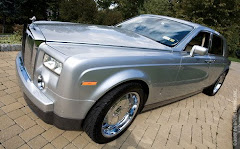Why AT&T Wants to Keep the iPhone Away From Verizon
By Saul Hansell
AT&T’s earnings report on Wednesday highlights the enormous stakes involved in the renewal of its exclusive contract to distribute Apple’s iPhone in the United States.
Tony Cenicola/The New York Times
In an interview with The Wall Street Journal last week, Ivan Seidenberg, Verizon’s chief executive, said the company was more likely to get access to the iPhone in the coming years as it converts to a fourth-generation technology, called L.T.E., which will also be used by AT&T. The two companies now use incompatible technology, and Apple has not wanted to make multiple versions of the iPhone.
AT&T is paying Apple an unusually high subsidy on top of the $199 and $299 paid by iPhone buyers. But it appears to be getting quite a return on that investment. In the first quarter, AT&T credited the iPhone for helping increase its wireless operating profit margin to 26 percent from 25 percent a year ago.
The company activated 1.6 million iPhones on its network in the quarter. And more than 640,000 of those customers were new to AT&T’s network. That represents three-quarters of the net addition of 875,000 new postpaid consumer accounts in the quarter. (AT&T added 325,000 more net business and prepaid wireless accounts in the quarter.)
IPhone customers, moreover, are particularly valuable, mainly because they also buy expensive data plans. Their average bill is $94 a month, 60 percent higher than the company’s overall customer base. Data represented 27 percent of AT&T’s $11.7 billion in wireless revenue in the quarter, up from 22 percent a year ago.
So let’s do some very rough calculations. If the average iPhone customer brings in $90 a month, or $1,080 a year in revenue, and the operating profit margin stays constant at 26 percent, that means an iPhone customer represents at least $561 in operating profit over a two-year contract. That probably understates the impact because iPhone customers have higher-than-average profit margins.
Put another way, if the company gets 2.5 million new customers a year because of its iPhone exclusivity, the deal represents at least $700 million a year in operating profits — profits that it could lose if Verizon sold the iPhone, too.
These numbers may be low. After all, some customers who renewed accounts with AT&T and bought iPhones might well have switched to Verizon instead if it too sold the iPhone. Many people believe that Verizon has a better network, and it might gain share in a market where it and AT&T both offered the same phone. But who knows whether that will still be true once the fourth-generation networks come online.
Also this analysis of the iPhone’s impact comes from a period when there are not competing smartphones with quite the alluring set of features it has. If customers begin to see a Palm or Android phone as the equivalent of an iPhone, the value of an exclusive deal goes down.
Still, with the sort of numbers AT&T reported this quarter, the company has every reason to make Apple an offer it can’t refuse to keep its exclusive deal for another few years.
Of course, the incentives for Verizon are presumably the mirror image. While some of AT&T’s new iPhone customers come from Sprint and T-Mobile, a good chunk of them might well move to or stay with Verizon if that company also offered the iPhone. There also may be a group of Verizon customers who would upgrade to an iPhone if it were available, and in doing so move to a more expensive data plan.
So expect Mr. Seidenberg to come to Cupertino, checkbook in hand, to see what sort of deal he can make.
All things being equal, Apple has a modest incentive to expand the distribution of the iPhone as much as possible. The greatest number of users means the greatest number of customers for its iPhone Apps store. Moreover, the iPhone brings new people into the Apple ecosystem and makes them more likely to buy a Mac, an Apple TV or an iPod.
But as the numbers above show, all things are hardly equal. And the benefit of somewhat more iPhone sales from wide distribution is likely to be swamped by a huge bid from AT&T to keep exclusivity, and an equally high bid from Verizon to win some (or maybe even all) of the business for itself.
In other words, no matter what happens, Apple wins.

Rolls Royce

